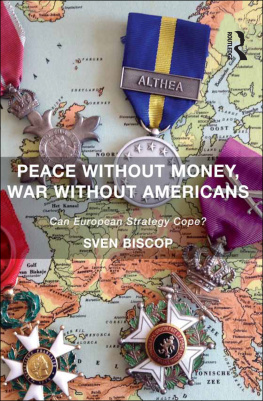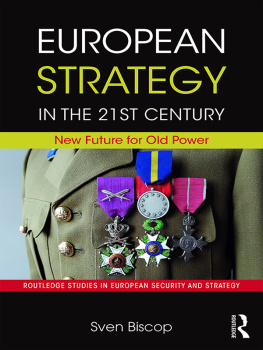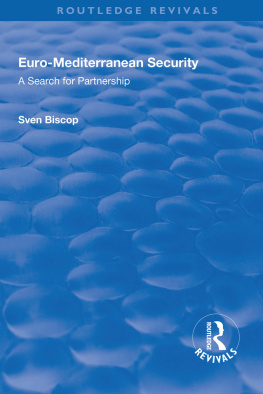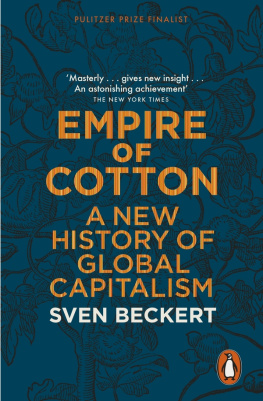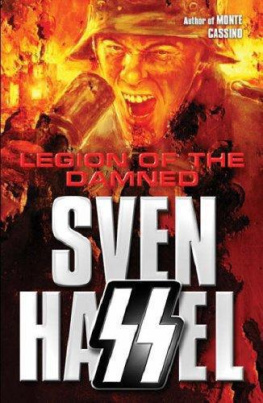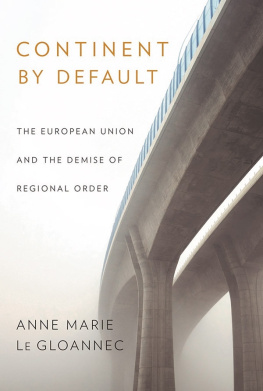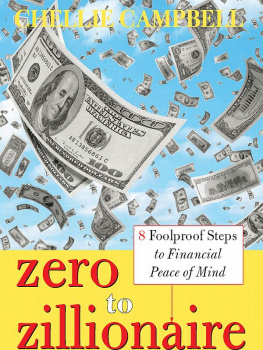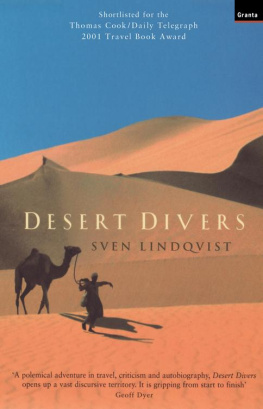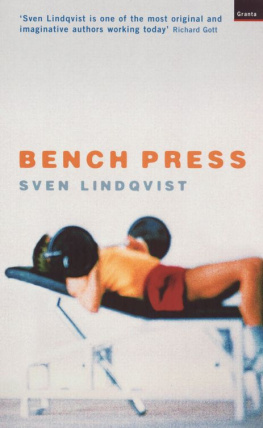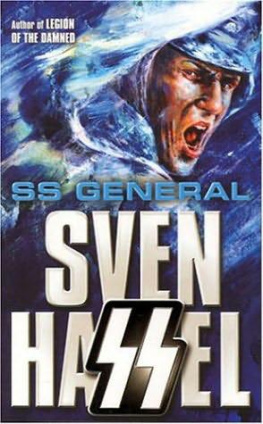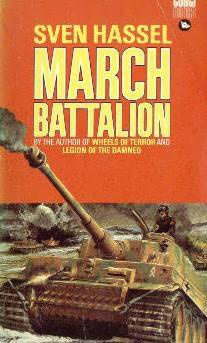PEACE WITHOUT MONEY, WAR WITHOUT AMERICANS
To my husband Aberu.
While everyone else was talking about the pivot to Asia, he pivoted to Europe and followed me from Taiwan to Brussels to marry me. Three years later, you still make it feel like we are newlyweds.
Peace Without Money, War Without Americans
Can European Strategy Cope?
SVEN BISCOP
Egmont Royal Institute for International Relations, Belgium and Ghent University, Belgium
First published 2015 by Ashgate Publishing
Published 2016 by Routledge
2 Park Square, Milton Park, Abingdon, Oxon OX14 4RN
711 Third Avenue, New York, NY 10017, USA
Routledge is an imprint of the Taylor & Francis Group, an informa business
Copyright Sven Biscop 2015
Sven Biscop has asserted his right under the Copyright, Designs and Patents Act, 1988, to be identified as the author of this work.
All rights reserved. No part of this book may be reprinted or reproduced or utilised in any form or by any electronic, mechanical, or other means, now known or hereafter invented, including photocopying and recording, or in any information storage or retrieval system, without permission in writing from the publishers.
Notice:
Product or corporate names may be trademarks or registered trademarks, and are used only for identification and explanation without intent to infringe.
British Library Cataloguing in Publication Data
A catalogue record for this book is available from the British Library.
The Library of Congress Catologing-in-Publication Data has been applied for
ISBN 9781472442888 (hbk)
ISBN 9781472442918 (pbk)
ISBN 9781315599861 (ebk-PDF)
ISBN 9781317082743 (ebk-ePUB)
About the Author
Prof. Dr. Sven Biscop is the director of the Europe in the World programme at the Egmont Royal Institute for International Relations in Brussels, which he joined in 2002. Sven teaches at Ghent University and at the College of Europe in Bruges. As a member of the Executive Academic Board of the European Security and Defence College (ESDC), he regularly lectures in its courses, as well as in various European staff colleges, and at the Peoples University in Beijing, where he is a Senior Research Associate of the Centre for European Studies. Sven chairs the jury of the biennial European Defence Agency Egmont PhD Prize in European Defence, Security & Strategy. In July 2015, Sven was made an Honorary Fellow of the ESDC, on the occasion of its tenth anniversary
List of Abbreviations
|
|---|
AGS | Alliance Ground Surveillance System |
BG | Battlegroup |
CDP | Capability Development Plan |
CFI | Connected Forces Initiative |
CFSP | Common Foreign and Security Policy |
CSDP | Common Security and Defence Policy |
DCFTA | Deep and Comprehensive Free Trade Agreement |
DDR | Disarmament, Demobilization and Reintegration |
DG | Directorate-General |
EATC | European Air Transport Command |
EDA | European Defence Agency |
EEAS | European External Action Service |
EEC | European Economic Community |
EIB | European Investment Bank |
EMP | Euro-Mediterranean Partnership |
ENI | European Neighbourhood Instrument |
ENP | European Neighbourhood Policy |
ESDC | European Security and Defence College |
ESDP | European Security and Defence Policy |
ESS | European Security Strategy |
EUMC | European Union Military Committee |
EUMS | European Union Military Staff |
FNC | Framework Nations Concept |
GCC | Gulf Cooperation Council |
HHG | Helsinki Headline Goal |
HR | High Representative |
IMF | International Monetary Fund |
IS | Islamic State |
ISTAR | intelligence, surveillance, target acquisition and reconnaissance |
NDPP | NATO Defence Planning Process |
NGOs | non-governmental organizations |
NRF | NATO Response Force |
OSCE | Organization for Security and Cooperation in Europe |
PESCO | Permanent Structured Cooperation |
R2P | Responsibility to Protect |
SCO | Shanghai Cooperation Organization |
SSR | Security Sector Reform |
TEU | Treaty on European Union |
TTIP | Transatlantic Trade and Investment Partnership |
TPP | Trans-Pacific Partnership |
VJTF | Very High Readiness Joint Task Force |
WMD | weapons of mass destruction |
Preface
Can Europe become an autonomous strategic actor only when the US orders it to? Sir, yes Sir! Autonomy, Sir!. To this Belgian author it seems a frustrating contradiction in terms. But what may not work in theory does work in practice: autonomy really is the order of the day for Europe. Just when Europes neighbourhood is in turmoil, on its eastern as well as on its southern borders, the focus of American strategy is shifting away from Europe, to China and Asia the US pivot. Autonomy is thus being forced upon the Europeans, who are slowly becoming aware that vital interests require resolute action in their broad neighbourhood by themselves, for nobody will automatically do it for them.
Britain and France were surprised at having to convince the US of the need to intervene in Libya in 2011, when Gaddafi was poised to crush the last remaining stronghold of the opposition, the city of Benghazi. Usually it is the other way around: the US trying to persuade its European allies that military action must be undertaken. The crisis in Mali in early 2013, when French forces launched a quick reaction to prevent Jihadist militias from overrunning the countrys capital, Bamako, confirmed the picture. Washington will support European action if and when Europe acts. The US expects Europe to take the initiative, at least in its own periphery. That really is at least regional strategic autonomy. And Europe does exercise it. After Russias annexation of the Crimea in 2014 and its successive incursion into eastern Ukraine, American deterrence, through the North Atlantic Treaty Organization (NATO), reassured European allies that their own territory was safe from a direct Russian threat. But it is Europe, under German leadership, that is trying to resolve the dispute with Russia, through diplomacy and sanctions.

